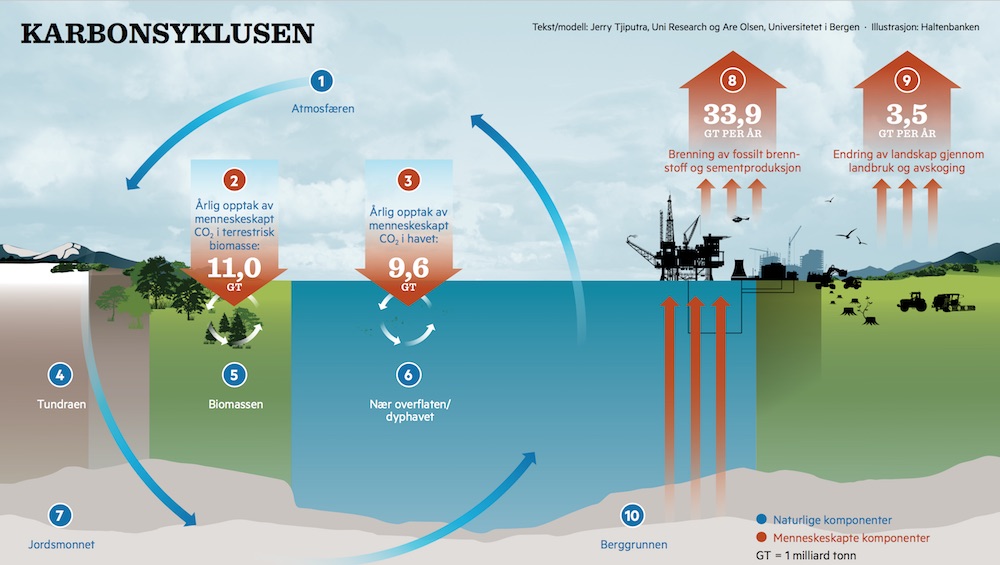Keywords: carbon cycle, climate feedbacks, sustainability, glacial cycles, nutrients, oxygen.

Biogeochemical processes are important in the global climate system and affect how much of man-made CO2-emissions are taken up by the ocean and land surface.
The Earth can be considered as a big chemical plant in which matter is redistributed among the different Earth system reservoirs. Within the field of biogeochemistry we study the flow of matter between atmosphere, ocean, land, sediments, and ice as a result of chemical, biological, and physical processes.
We are in particular concerned with carbon as it plays a major role in the climate system; the concentration of carbon dioxide (CO2) in the atmosphere influences strongly the temperature in the atmosphere and at the Earth’s surface. The cycling of carbon is coupled to cycles of other elements, in particular oxygen, nitrogen, and phosphorus.
In order to make predictions about the reaction of the climate system in response to man-made CO2 emissions to the atmosphere, we try to find out more about the fate of this CO2 in the Earth system. For example we study how much of the CO2 emissions are taken up by the ocean and what the consequences of this may be. In addition, other substances – such as the greenhouse gases CH4 and N2O - are climatically relevant as these also contribute to the greenhouse effect of the atmosphere or influence other climatic factors such as cloud formation.
Furthermore, biogeochemical tracers in the ocean are used in order to understand how the ocean circulation works in the present and how it has worked in the past. Biogeochemistry is a relatively young and quickly growing discipline as more and more direct links between the climate system and biogeochemical processes are identified.
Research focus
The Research Group RG3 Biogeochemical Cycles at the Bjerknes Centre focuses on the following issues:
- How much of the human induced CO2 emissions are taken up by the ocean?
- What are the consequences of the oceanic CO2 uptake in terms of ocean acidification?
- What controls natural variations of the carbon cycle?
- What do biogeochemical tracers tell us about water mass formation and ocean circulation?
- What are the feedbacks between the climate system and biogeochemical processes in the ocean and on land?
- How to include the marine sedimentary paleoclimate record in global ocean models?
- How to include vegetation and soils in global climate models?
A comprehensive marine carbon observing system has been developed and operates using autonomous instruments on voluntary observing ships, time series stations (e.g. ICOS-Norway). We also collect deep section data at dedicated research cruises.
Biogeochemical component models are developed and run for the ocean and recently also for the land biosphere. These models are presently being coupled into the Bergen Climate Model and the emerging Norwegian Earth System Model NorESM.
Strategic project:
LOES, Low and overshot emission scenarios – from a high to a low carbon society. Leaders: Jörg Schwinger and Hanna Lee.
